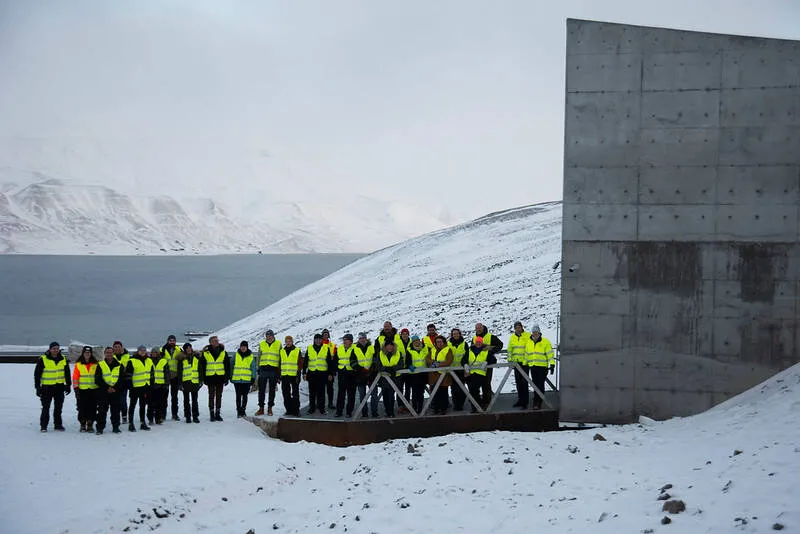Today, on the 15th anniversary of the opening of the Svalbard Global Seed Vault, 20 international gene banks have deposited 20 new seed samples there.
4 of these gene banks deposited seeds for the first time. These are: Benin, North Macedonia, Albania and Croatia. After today's deposit in Svalbard Global Seed Vault 1,2 million seed samples are currently stored from 100 gene banks from all continents of the world. The total capacity is 4,5 million seed samples.
– The Svalbard Global Seed Vault offers long-term security measures in a world where natural disasters such as earthquakes and floods, human activities such as wars and conflicts, and mishaps such as long-term power outages will affect plant diversity, and thus the future of agriculture, said Minister of Agriculture and Food Sandra Borch during today's seed deposit.
Also read: Equinor found oil and gas near the Troll field in the North Sea
Borch invited all 15-year-olds living in Longyearbyen to help with their 15th anniversary deposits.
– This is not a symbolic act, but also a legacy and a task of great importance for the food security of the world, which we pass on to the young and future generations – says Borch.
Karen Ellemann, Secretary General of the Nordic Council of Ministers, the funding organization for the Nordic Genetic Resources Center (NordGen), and Stefan Schmitz, Managing Director of the Global Crop Diversity Trust (Crop Trust), which supports gene banks around the world, were also present at the event's conference.
The world's largest safe reserve landfill site
Svalbard Global Seed Vault, located 78 degrees north of the equator. It is the world's largest secure reserve store and holds copies of seed samples from almost every country in the world. The seed store is artificially cooled to minus 18 degrees. The massive rock also keeps the seed samples frozen even when there is intermittent power instability. The seed vault is the critical last link in insuring the world's food supply. It holds the world's largest seed safety reserve for food and feed crops. These seed samples represent over 5000 species.
The Svalbard Global Seed Vault has proven its worth
The seed store has already proven itself. The International Center for Agricultural Research in the Dry Areas (ICARDA) originally stored its seed collection in Aleppo, Syria. Now the seed collection has also been restored in Morocco and Lebanon with the help of reserve seeds. These seeds were previously deposited in a seed vault. Reconstructing these collections would not have been possible without depositing such copies for seed storage in Svalbard.
Like us on Facebook and share our post with others. Thank you.
Source: regjeringen
Photo: Ministry of Agriculture and Food
Read and learn more: 5 steps you can take when thinking about your finances



